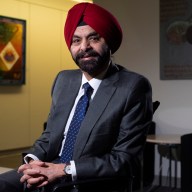 Pfc. Bradley E. Manning is escorted from a hearing, on January 8, 2013 in Fort Meade, Maryland.
Pfc. Bradley E. Manning is escorted from a hearing, on January 8, 2013 in Fort Meade, Maryland.
Credit: Getty Images
For San Francisco gay pride, Bradley Manning is the popular choice for Grand Marshal, and his youthful features will decorate posters while the ex-soldier stands trial for treason charges that could see him serve 50 years in jail.
Since Manning, 25, released almost a million classified US documents to Wikileaks in 2010, his following has grown steadily. Dozens of cities will hold protests around his pre-trial on May 21 and his court martial on June 3. Over $1 million have been crowd-sourced in legal support, and the ‘Bradley Manning Support Network’ operate a merchandise store selling stickers, posters and the black t-shirts visible at all of the whistleblower’s court appearances.
An unlikely alliance of veterans, ‘hacktivists’ and gay rights groups have united to support Manning. “People are drawn to his actions, which they see as a form of civil disobedience,” biographer Denver Nicks told Metro. “Manning has become a poster boy for all kinds of things wrong with our society, from dysfunctional state secrecy to the tragedy of the Iraq War to homophobia – he appeals to disparate campaign groups because his story ticks a lot of boxes.”
That appeal is deep as well as broad. “He is arguably the most significant ‘war resistor’ in history,” says support group member Ben Griffin, who has campaigned since 2010. “Manning has shown a tremendous sense of integrity and justice for someone so young, as well as compassion,” adds US campaign organizer Emma Cape, who argues Manning honors Martin Luther King’s principle that “one who breaks a law that conscience tells him is unjust… is in reality expressing the highest respect for law.”
Such fervent following has given Manning a quasi-cult appeal. “Part of it is that he can’t help but be intensely enigmatic. We can’t interview him, so everything we can say about his motives is speculative,” says Tom Payne, author of “Fame: What the Classics Tell Us about Our Cult of Celebrity”.
However, a smaller anti-Manning campaign has also emerged, with nationalist US groups calling for him to be executed.
















